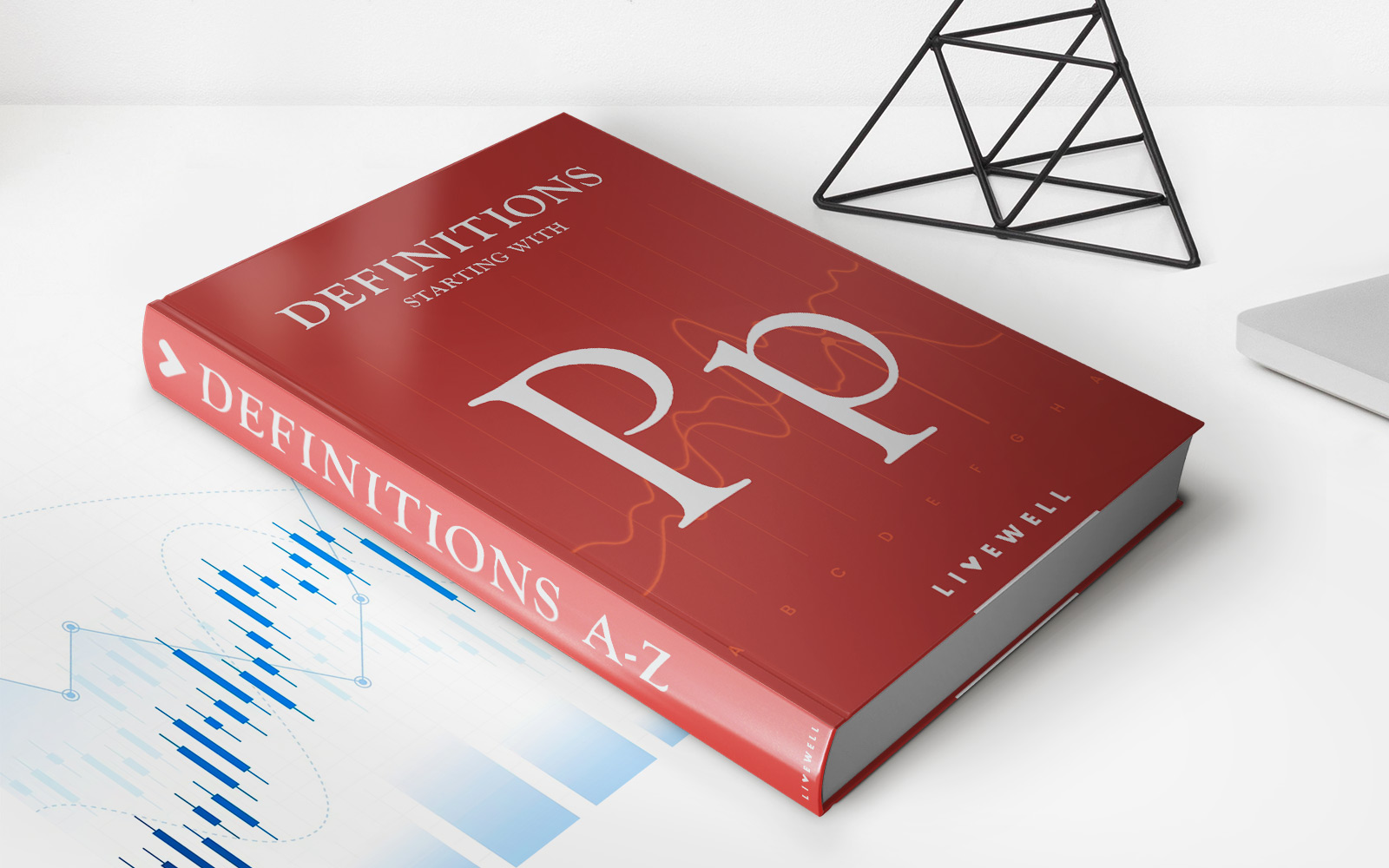

Finance
Which Credit Bureau Does Car Dealerships Use
Published: March 3, 2024
Find out which credit bureau car dealerships use to check your credit when you apply for financing. Learn how your credit score can impact your auto loan approval. Discover tips to improve your credit for better financing options.
(Many of the links in this article redirect to a specific reviewed product. Your purchase of these products through affiliate links helps to generate commission for LiveWell, at no extra cost. Learn more)
Table of Contents
Introduction
When you decide to buy a car, whether it’s a brand-new model or a reliable used vehicle, chances are you’ll need financing to make that dream a reality. Car loans are a common way for individuals to afford a vehicle, and the terms of these loans are often influenced by the borrower’s credit history and score. This is where credit bureaus come into play.
Credit bureaus play a pivotal role in the financial world, as they collect and maintain information about consumers’ credit behavior, which is then used by lenders to assess the creditworthiness of potential borrowers. When it comes to car financing, understanding which credit bureau car dealerships use can provide valuable insight into the loan approval process and the factors that influence it.
In this article, we will delve into the significance of credit bureaus in car financing, explore the major credit bureaus used by car dealerships, examine the factors that influence the choice of credit bureau, and assess the impact of credit bureau selection on car loan approval. By shedding light on these aspects, you’ll gain a clearer understanding of how credit bureaus shape the car financing landscape and the role they play in determining your loan options.
Importance of Credit Bureaus in Car Financing
Credit bureaus are instrumental in the car financing process as they provide crucial information that helps lenders evaluate the creditworthiness of potential borrowers. When individuals apply for car loans, dealerships and lenders rely on the data furnished by credit bureaus to make informed decisions regarding loan approval, interest rates, and loan terms.
One of the key roles of credit bureaus is to maintain credit reports for consumers. These reports contain detailed information about an individual’s credit history, including their payment history, outstanding debts, credit utilization, and any derogatory marks such as bankruptcies or foreclosures. By compiling this data, credit bureaus offer a comprehensive overview of a borrower’s financial behavior, enabling lenders to assess the level of risk associated with extending a car loan.
Moreover, credit scores, which are derived from the information in credit reports, play a pivotal role in the car financing process. These scores serve as a numerical representation of an individual’s creditworthiness and are used by lenders to gauge the likelihood of timely loan repayment. A higher credit score often translates to more favorable loan terms, including lower interest rates and higher loan amounts, while a lower score may result in less favorable terms or even loan rejection.
For car dealerships, leveraging the insights provided by credit bureaus is essential for managing risk and making prudent lending decisions. By analyzing an applicant’s credit report and score, dealerships can tailor loan offers to align with the borrower’s financial profile and the dealership’s risk tolerance. This personalized approach benefits both the borrower and the lender, as it facilitates access to financing options that are suited to the individual’s financial circumstances.
In essence, credit bureaus serve as the custodians of financial data that underpin the car financing process, empowering lenders to make informed lending decisions and enabling consumers to access financing that aligns with their credit standing.
Major Credit Bureaus Used by Car Dealerships
Car dealerships typically rely on the three major credit bureaus – Equifax, Experian, and TransUnion – to obtain credit reports and scores when evaluating loan applications. These bureaus are industry leaders in collecting and maintaining consumer credit information, and their data is widely utilized by lenders, including car dealerships, to assess the creditworthiness of loan applicants.
Equifax, founded in 1899, has established itself as a prominent credit reporting agency, offering a range of credit-related services to businesses and consumers. Its comprehensive credit reports provide detailed insights into individuals’ credit histories, serving as a valuable resource for car dealerships seeking a comprehensive understanding of an applicant’s financial behavior.
Experian, another major player in the credit reporting industry, is known for its extensive data resources and advanced analytical tools. Car dealerships often turn to Experian for credit reports and scores that enable them to make informed lending decisions and tailor loan offers to suit the financial profiles of potential borrowers.
TransUnion, with a rich history dating back to 1968, is a trusted source of credit information for car dealerships and lenders. Its credit reports offer in-depth analyses of consumers’ credit activities, providing valuable insights that assist dealerships in evaluating loan applications and mitigating lending risks.
These major credit bureaus play a pivotal role in the car financing landscape, as their data forms the foundation for assessing the creditworthiness of loan applicants. By leveraging the comprehensive information provided by these bureaus, car dealerships can make well-informed lending decisions and offer financing options that align with the financial profiles of potential borrowers.
Factors Influencing the Choice of Credit Bureau
Car dealerships consider several factors when choosing which credit bureau to use for evaluating loan applications. These factors play a crucial role in determining the bureau that best aligns with the dealership’s lending practices and the specific needs of the borrowers. Understanding the key influencers can shed light on the dynamics that shape the selection of a credit bureau.
- Data Availability: The availability of comprehensive and up-to-date credit data is a paramount consideration for car dealerships. They seek credit bureaus that can provide detailed reports encompassing an individual’s complete credit history, enabling a thorough assessment of the applicant’s financial behavior.
- Scoring Models: Different credit bureaus may utilize distinct scoring models to generate credit scores. Car dealerships evaluate these models to determine which aligns most closely with their lending criteria and risk assessment practices, as this influences the accuracy of the credit evaluation process.
- Industry Relationships: The relationships and partnerships that credit bureaus have established within the automotive industry can influence a dealership’s choice. Bureaus with strong industry ties may offer specialized services and tailored solutions that cater specifically to the needs of car dealerships.
- Reporting Timeliness: The timeliness of credit reporting is critical for car dealerships, as they rely on current and accurate data to make informed lending decisions. Bureaus that provide real-time or frequently updated credit information are often preferred for their ability to offer the most current insights into an applicant’s credit status.
- Customer Support and Tools: The level of customer support, as well as the availability of advanced analytical tools and resources, can influence the choice of credit bureau. Car dealerships value bureaus that offer robust support and innovative solutions to streamline the credit evaluation process and enhance the overall customer experience.
By weighing these factors, car dealerships can select the credit bureau that best meets their specific requirements, enabling them to make well-informed lending decisions and offer tailored financing solutions to potential car buyers.
Impact of Credit Bureau Choice on Car Loan Approval
The choice of credit bureau can significantly influence the car loan approval process, shaping the outcome of loan applications and the terms offered to borrowers. Understanding the impact of this choice provides valuable insight into the dynamics that underpin the car financing landscape.
Each credit bureau utilizes its own proprietary algorithms and scoring models to generate credit scores, resulting in variations in the scores provided to individuals. As a result, the choice of credit bureau can directly impact the credit score used by car dealerships to assess loan applications. This, in turn, can influence the likelihood of loan approval and the terms extended to borrowers.
Furthermore, differences in the data collected and reported by each credit bureau can lead to disparities in the information available to car dealerships. This variance in credit information may affect the evaluation of an individual’s creditworthiness, potentially resulting in divergent lending decisions based on the bureau chosen for credit assessment.
Moreover, the reporting practices and data availability of credit bureaus can impact the timeliness and accuracy of the credit information accessed by car dealerships. Bureaus that offer real-time or frequently updated credit data may provide a more current and comprehensive view of an applicant’s credit status, enabling dealerships to make more informed lending decisions.
Additionally, the choice of credit bureau can influence the level of support and resources available to car dealerships during the credit evaluation process. Bureaus that offer advanced analytical tools, industry-specific solutions, and robust customer support can enhance the efficiency and effectiveness of the lending process, potentially impacting the speed and accuracy of loan approvals.
By recognizing the impact of credit bureau choice on car loan approval, dealerships can make informed decisions regarding which bureau to utilize for credit assessment. This awareness empowers dealerships to tailor their lending practices to align with the strengths and capabilities of the chosen credit bureau, ultimately shaping the car financing experience for both dealerships and borrowers.
Conclusion
Understanding the role of credit bureaus in the car financing process is essential for both car dealerships and potential borrowers. The choice of credit bureau holds significant weight in determining the outcome of loan applications and the terms offered to individuals seeking car financing. By leveraging the insights provided by major credit bureaus such as Equifax, Experian, and TransUnion, car dealerships can make informed lending decisions that align with their risk assessment practices and industry relationships.
Factors such as data availability, scoring models, industry relationships, reporting timeliness, and customer support play a pivotal role in influencing the selection of a credit bureau for credit assessment. These considerations shape the dynamics of the credit evaluation process, impacting the accuracy of credit assessments, the speed of loan approvals, and the overall customer experience.
For potential borrowers, understanding the impact of credit bureau choice on the car loan approval process sheds light on the factors that shape their financing options. By recognizing the nuances associated with different credit bureaus, individuals can gain insights into the variables that influence their credit assessments and loan approval outcomes.
In essence, the choice of credit bureau serves as a cornerstone of the car financing landscape, shaping the interactions between car dealerships and borrowers. By navigating the intricacies of credit bureau selection and leveraging the comprehensive insights provided by these bureaus, car dealerships can offer tailored financing solutions that cater to the diverse financial profiles of potential car buyers, ultimately enhancing the accessibility and inclusivity of the car financing experience.
As the car financing landscape continues to evolve, the role of credit bureaus remains integral, providing a foundation for informed lending decisions and empowering individuals to embark on their car ownership journey with confidence.














